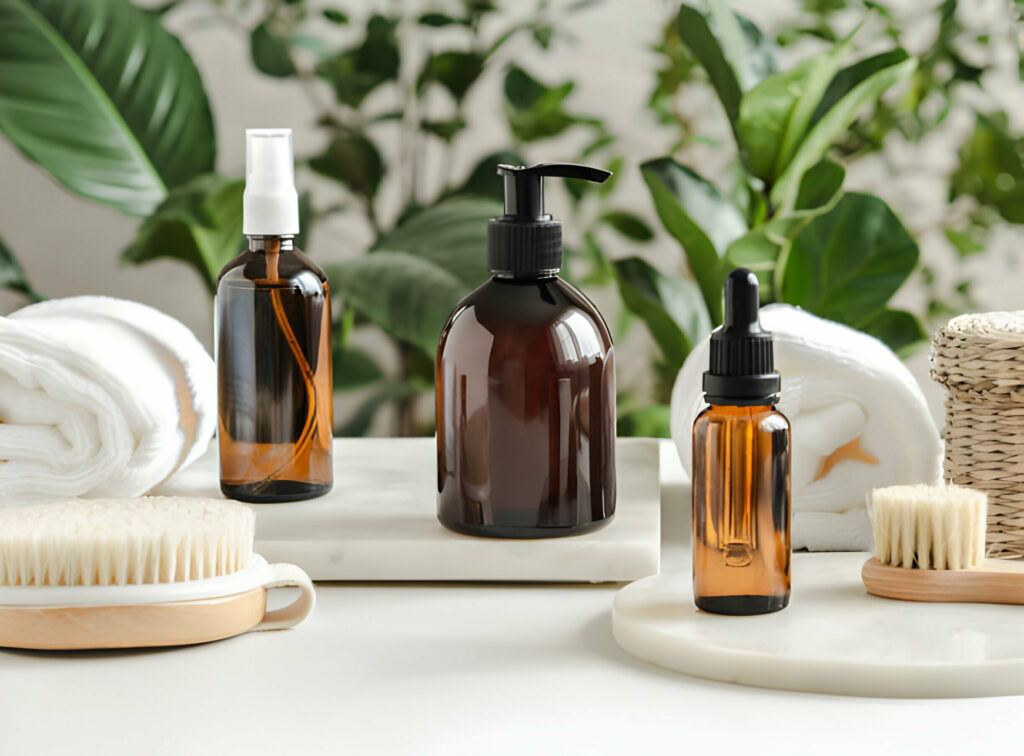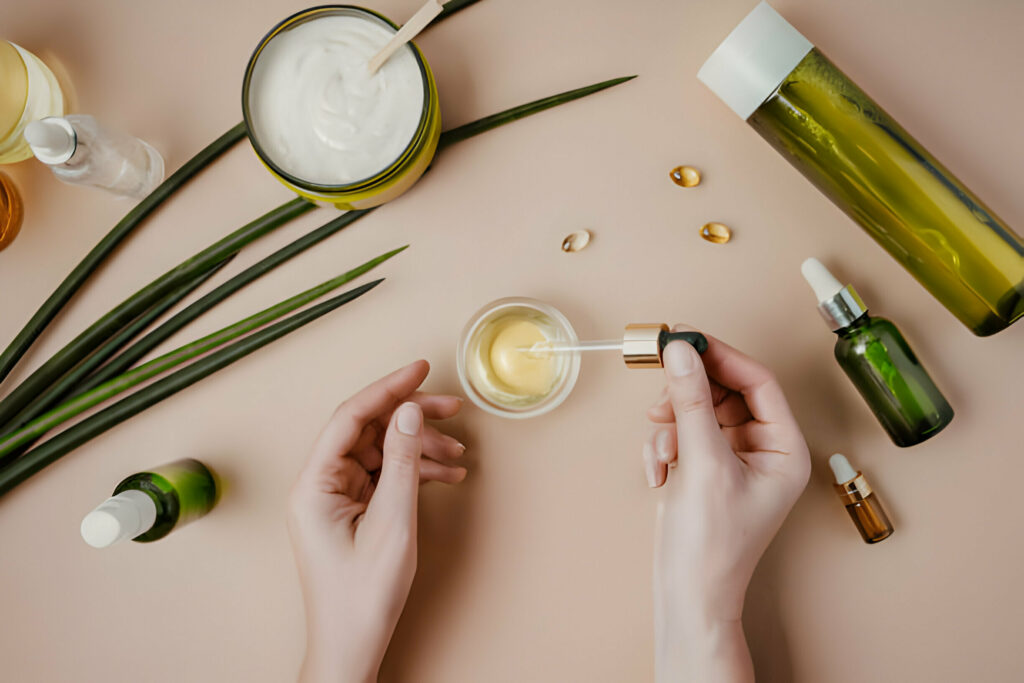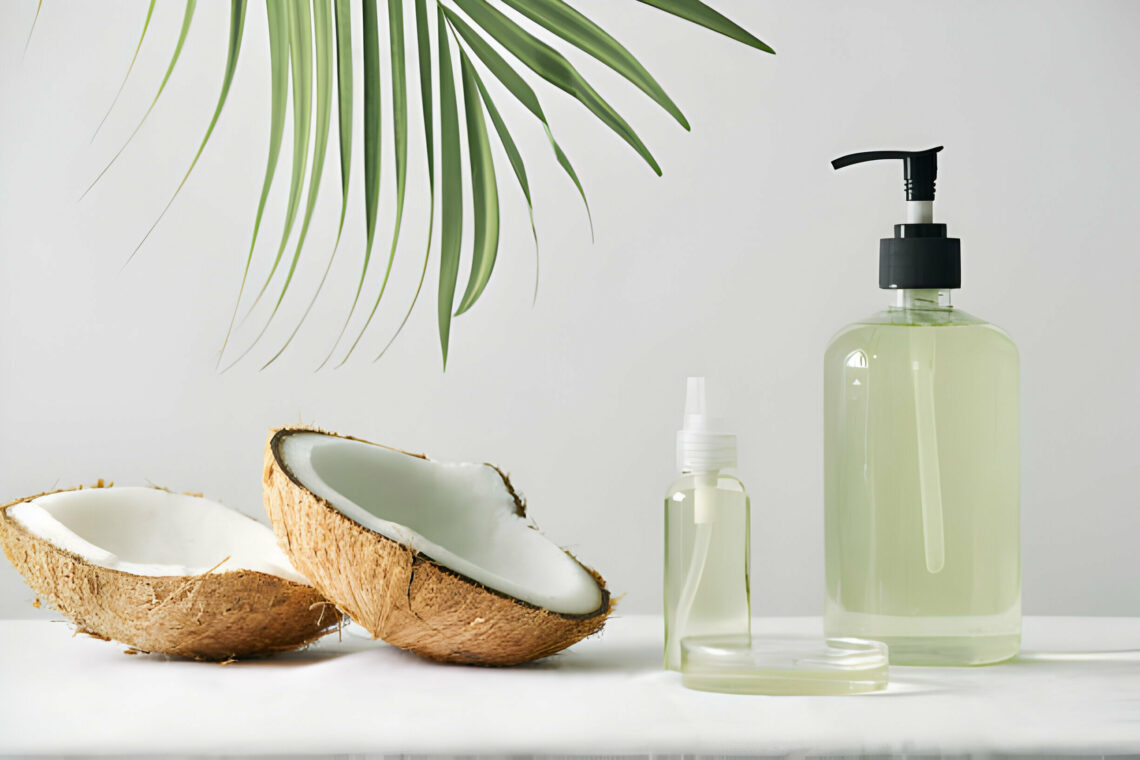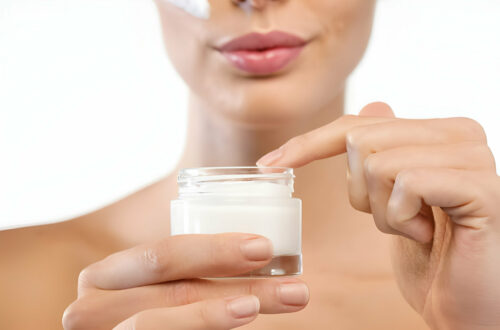Dry skin can be caused by various factors, like daily bathing habits (such as taking hot showers and vigorously drying with a towel) and harsh winter weather. As you age, your skin might also lack natural oils.
The good news is, unless you have a skin condition, you don’t necessarily need to see a dermatologist to treat dry skin. You can try a simple home remedy as part of your skincare routine.
You might already have the ingredients for these dry skin solutions in your kitchen. Some of these ingredients, like coconut oil, tea, and aloe vera, are often considered “remedies” in antioxidant skin care. They have been used as natural treatments for a long time in various cultures around the world. However, if you have an underlying skin issue contributing to your dryness, it’s a good idea to consult a certified dermatologist before attempting any home remedy. This precaution can help you prevent making your dry skin worse.

“According to Jennifer Adell, a licensed aesthetician and senior aesthetician at New Beauty and Wellness in Westport, Connecticut, home remedies are great for various skin types, especially when you’re in a hurry or want to explore alternative skincare solutions. However, if you’re dealing with persistent skin issues like rosacea, psoriasis, or cystic acne, it’s advisable to seek advice from an aesthetician or dermatologist.”
Why Choose a Natural Remedy for Dry Skin Instead of Buying a Product? If lengthy lists of ingredients make you uneasy or perplexed, trying a holistic skin care home remedy might be a good idea. Over-the-counter products often contain numerous ingredients. They not only include active moisturizing agents but also preservatives,” explains Christine Poblete-Lopez, MD, the residency program director and vice chair of the Department of Dermatology at the Cleveland Clinic in Ohio.
This is particularly true for water-based products, as Michigan State University highlights that bacteria thrive in such formulas. However, even though these preservatives and additives like alcohol and fragrances are well-intentioned, they can lead to irritation, dryness, and sometimes allergic reactions.
If you have allergies or sensitive skin, you might prefer a simple skincare routine. For instance, oils, unlike water-based lotions and creams loaded with preservatives, have a natural base. This makes them a suitable choice for dry skin when there’s no underlying skin condition.
Remember, though, that oils and other over-the-counter remedies aren’t regulated by the U.S. Food and Drug Administration (FDA), so their safety isn’t guaranteed. It’s always a good practice to consult a dermatologist before incorporating any new DIY recipe into your skincare routine, just to be on the safe side.”
How Natural Remedies Can Help Soothe Dry and Irritated Skin
Your skin produces a natural oil called sebum, which keeps it from losing moisture. However, everyday actions like forgetting to use a moisturizer or washing your hands with harsh soap can remove these protective oils. For those focused on glowing skin care and without acne, oils can bring back the skin’s shine and protective barrier.
If you have acne, dermatologists suggest being careful with oils because acne is often caused by too much sebum, according to the American Academy of Dermatology Association (AAD). Tea tree oil could be an option, as some evidence shows it might help with mild to moderate acne. Yet, before trying a new acne treatment, it’s wise to consult a dermatologist. Tea tree oil, in particular, might cause skin irritation.
You can use oils in various ways to enjoy their moisturizing benefits, either on their own or combined with other ingredients, to create a DIY nourishing mask or exfoliating scrub. Poblete-Lopez suggests that certain people with dry skin might find peptides skin care, castor oil, lavender oil, and avocado oil beneficial
Coconut oil, which you might have in your kitchen, can also be a good choice for those without acne. A previous randomized controlled trial found that people with atopic dermatitis, a type of eczema characterized by dryness and itching, saw improvement in their symptoms when using virgin coconut oil on their skin.

Aloe vera, a natural healing houseplant, is also effective as a natural moisturizer. A review published in Plant Foods for Human Nutrition in June 2019 explains that aloe vera gel contains substances like hyaluronic acid that help trap moisture in the skin, making it another excellent natural moisturizing ingredient to consider.
13 DIY Natural Remedies to Moisturize Dry Skin When your skin feels dry and needs some care, you can try these simple remedies at home:
- Make an Olive Oil Moisturizer to Soothe Dry Skin If you need quick extra moisture, Jennifer Adell suggests using extra-virgin olive oil as an alternative to moisturizer—only when needed.
“Olive oil has vitamin E, antioxidants, squalene, and other elements that repair damaged skin,” she explains. However, she notes that it might not be suitable for acne-prone skin, as it could potentially clog pores.
Before using olive oil on your skin, consult a dermatologist to ensure it’s right for you. Research published in the International Journal of Molecular Sciences in December 2017 suggests that while olive oil can reduce inflammation, using it directly on your skin might harm the skin barrier.
If you decide to give olive oil a try, Adell recommends using a pure, non-refined form without other oils. Use it sparingly—apply a few drops to a face mask or gently massage it into very dry areas like elbows.
- Create a Creamy Avocado Mask at Home Making a mask from avocado is another natural way to soothe dry skin, and Jennifer Adell even uses it for her own family. “This face mask is packed with antioxidants and probiotics that encourage healthy, radiant skin,” she explains. Her suggestion is to mix ½ of avocado with ¼ cup of plain Greek yogurt (which, as per a review in a 2020 issue of Current Pharmaceutical Biotechnology, might enhance skin texture due to its lactic acid content). Add a drizzle of manuka honey and 1 teaspoon of turmeric for potential anti-inflammatory benefits. Turmeric has been linked to improvements in inflammatory skin conditions like eczema, according to a separate review in the September 2019 Nutrients journal. Apply the mixture to clean skin and leave it on for 5 to 10 minutes before rinsing off.
As for the other half of the avocado, enjoy it as a snack! A small pilot study published in the September 2022 Journal of Cosmetic Dermatology found that women who ate an avocado daily experienced increased skin elasticity and firmness.
Another method, detailed in a study from the Journal of Cosmetic Dermatology in September 2020, involved combining avocado oil, water, and saffron extract. Researchers noted that this combination rejuvenated the skin and reduced the appearance of wrinkles, although significant moisturization effects weren’t entirely clear.
- Craft a Coconut Oil and Sugar Scrub To address dry and textured skin caused by dead skin cells, you might want to try a gentle homemade sugar scrub. Michigan State University suggests mixing 1 cup of brown or granulated sugar with ½ cup of coconut oil. For a pleasant scent and potential relaxation, you can add a bit of essential oil like lavender. A study in the January 2022 Journal of Integrative and Complementary Medicine even proposed that lavender could decrease anxiety and promote relaxation. Gently massage the scrub onto your skin for about 30 seconds, then rinse it off with lukewarm water. Afterward, consider using a soothing moisturizer, as recommended by the American Academy of Dermatology, to lock in the benefits of freshly exfoliated skin.
However, it’s important to note that this type of physical exfoliation may not suit all skin types. The AAD advises against using scrubs for skin that’s sensitive, prone to acne, or already irritated.
Adell warns against using sugar scrubs, especially on the face if you have sensitive skin. She explains, “Facial skin is more delicate than the skin on your body, so physical exfoliation can easily lead to irritation and sensitivity.” She suggests using chemical peel pads or enzyme powders for exfoliating instead.
- Soothe Your Skin with an Oatmeal Soak Jennifer Poblete-Lopez suggests that adding a cup of oatmeal to a warm bath can naturally rehydrate dry skin. “Oats have a soothing effect on the skin,” she notes, helping your skin retain moisture from the bathwater. Alternatively, for a neat soak, secure the oats in pantyhose and attach them to your faucet, allowing the bathwater to run through.

For those with eczema, oatmeal can provide relief from dry, inflamed, or irritated skin linked to atopic and contact dermatitis, as stated by DermNetNZ. In a double-blind study published in March 2020 in Clinical, Cosmetic, and Investigational Dermatology, researchers found that colloidal oatmeal treated hand eczema due to its anti-inflammatory, soothing, and protective properties.
- Make an Oatmeal Honey Mask for Gentle Exfoliation Oatmeal is great for exfoliation and masks. Combine 2 tablespoons of oats, 1 tablespoon of honey, and a bit of water. Use it as a scrub to exfoliate or leave it on for 15 to 20 minutes as a calming, hydrating mask. Honey may have antimicrobial properties that help with wound healing, as noted in a review in the October 2021 Open Life Sciences.
- Apply Coconut Oil before Bed Coconut oil, known from African and Indian cultures, is a popular home remedy for healthy skin and hair. TsipporaShainhouse, MD, a dermatologist, suggests using it as a moisturizer before bedtime. Since coconut oil solidifies at room temperature, it can be applied like a cream. Dr. Shainhouse also advises using it on dry heels and hands and covering it with socks or gloves.
- Try Nourishing Oils for Skin Natural oils are great for moisturizing and rebuilding the skin’s protective barrier, which can be damaged by frequent washing with drying soaps. In addition to olive and coconut oils, consider jojoba, argan, and avocado oils. To use, add a few tablespoons of the chosen oil to your bathwater. Enjoy a short soak and gently pat your skin dry afterward to retain some of the oil’s benefits. Avoid applying oils directly in the bath if you’re concerned about vaginal health risks.
- Soothe Irritated Skin with Milk Compresses Milk has natural anti-inflammatory properties and contains lactic acid, which gently exfoliates. Make a milk compress by soaking a clean cloth in cool milk and placing it on dry areas. Leave it on for 5 to 10 minutes. This is especially useful for itchy, irritated skin. Be cautious with lactic acid if you have cracked skin, as it may sting. If you experience burning, stop using it and consult a dermatologist. While lactic acid can help restore the skin barrier and treat conditions like eczema, avoid it during active flare-ups.
- Try a Fruit Enzyme Cleanser or Exfoliant Fruit enzymes like alpha-hydroxy acids (AHAs) gently exfoliate dull skin cells. Use a fruit enzyme-infused wash or mask twice a week. Look for enzymes like bromelain (from pineapple), papain (from papaya), and ficain (from figs) for their exfoliating benefits.
- Apply Aloe Vera to Dry Skin Aloe vera gel, often used for sunburn relief, can also soothe dry skin during winter. It reduces redness, irritation, and signs of aging, and can help with acne and skin injuries. Test for allergies with a small patch before applying to larger areas.
- Use Honey to Treat Dry Patches Honey has special effects that can make your skin softer and help it keep moisture, as shown in previous research. It can also be an alternative treatment for skin issues like dermatitis, psoriasis, and dandruff.
Honey, especially manuka honey, is great for healing wounds too. It’s naturally antimicrobial, keeps the affected area moist, and forms a protective barrier against infection.
Because of these qualities, honey is a great ingredient for making face masks. It can also work as a powerful treatment for areas of your skin that are dry and irritated. Just like with the avocado mask, using manuka honey can aid in healing while reducing skin inflammation. To use it, apply a small amount to your face, leave it on for a few minutes, and then rinse it off.
- Use Tea Bags to Calm Inflammation If you enjoy tea, you might find more uses for the tea bags you have at home. This includes herbal teas like chamomile and jasmine, as well as green and black teas.
According to the Cincinnati Health Institute, black and green tea bags can cool and reduce inflammation in your skin. Black tea bags might also help balance your skin’s natural pH level.
Caffeine in these teas might help with under-eye circles by gently shrinking blood vessels in that delicate area, says Adell. For 5 to 10 minutes, you can apply a cool, wet tea bag under each eye.
A small study in the December 2019 Journal of Dermatological Treatment looked at the effect of using gauze soaked in weak, room-temperature black tea for 20 minutes, followed by cream, on people with facial atopic dermatitis. After using this treatment for three days, participants saw improvement in their skin symptoms.
As for brewed herbal tea bags, Adell suggests that chamomile might reduce inflammation and irritation. She recommends placing brewed, cooled chamomile on your skin for up to 30 minutes. She also notes that jasmine tea can help with acne.
- Go Simple with Petroleum Jelly You might already have Vaseline or Aquaphor in your bathroom. These contain petroleum jelly, which can help with dry skin, prevent chafing, and help skin heal. It’s safe to use on your body, even on your lips and eyelids. Some people even use petroleum jelly all over their faces overnight, a practice called “slugging.”
You can use petroleum jelly when needed throughout the day, but it works best on damp skin. If you have acne-prone skin, avoid using it on your face.
5 Expert Tips to Prevent Dry Skin After moisturizing your skin, here are some steps to protect it and avoid it getting dry again:
- Include moisturizing in your daily routine. Apply moisturizing lotion all over your body after showering. For very dry skin, you can use ointments or creams. Look for products with ingredients like shea butter, hyaluronic acid, or jojoba oil.
- Be mindful of your bathing habits. Avoid hot showers and keep your bathing time between 5 and 10 minutes. Use a gentle cleanser instead of harsh soaps.
- Avoid harsh chemicals. Alcohol and apple cider vinegar can worsen dry skin. They might even cause burns in some cases.
- Stay hydrated. While the connection between drinking water and treating dry skin isn’t fully proven, staying hydrated is good for your overall health.
- Dress appropriately for the weather. Wear sunscreen in the summer and protect your skin in winter by wearing gloves to prevent dryness and chapping.





